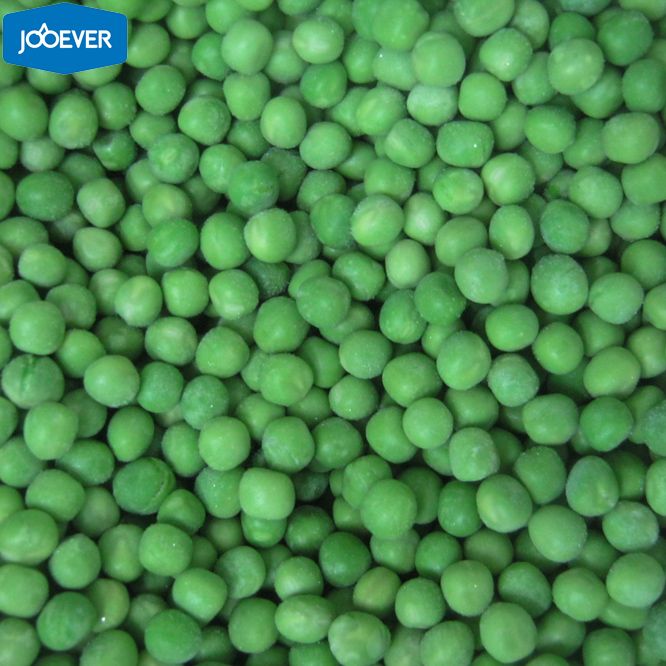Your reliable partner for frozen foods
Green peas are a popular, affordable, and nutritious food that fits well into many types of meals. Whether you’re adding them to stir-fries, soups, or side dishes, both canned and frozen peas offer convenience. But how do they compare in terms of nutrition and overall value?
Let’s take a closer look at the key differences between canned and frozen peas to help you decide which option best suits your needs.
To begin with, both canned and frozen peas are low in calories and fat, making them a healthy choice for most diets. A 100-gram serving of canned peas (drained) contains about 69 calories, while frozen peas contain slightly more at 77 calories. The fat content is also minimal—0.6 grams in canned peas and 0.4 grams in frozen peas per 100 grams. In short, both options are naturally low in fat and suitable for calorie-conscious meals.

When it comes to carbohydrates, frozen peas contain slightly more—13.6 grams per 100-gram serving, compared to 11.4 grams in canned peas. They also have a bit more sugar (5 grams vs. 3 grams) and slightly higher fiber content (4.5 grams vs. 4 grams). Since fiber is essential for digestion and promoting fullness, frozen peas have a modest advantage in this area.
The biggest nutritional difference between canned and frozen peas lies in their sodium content. Canned peas typically contain about 291 milligrams of sodium per 100 grams, due to being preserved in salted water. In contrast, frozen peas contain only around 108 milligrams. If you are watching your sodium intake, frozen peas are the better option. However, canned peas offer slightly more potassium, a key mineral for heart and muscle function.
Frozen peas generally retain more vitamins than canned peas. They contain almost double the vitamin C and folate, and nearly triple the vitamin A. In terms of beta-carotene—an antioxidant that supports eye health—frozen peas offer nearly four times as much as canned peas. However, canned peas contain a little more vitamin K. Overall, frozen peas come out ahead for vitamin content.
Peas, whether canned or frozen, are a rich source of plant-based protein and dietary fiber. They provide a winning combination that supports gut health, helps you feel full longer, and may aid in weight management. A cup of cooked peas delivers about 8.6 grams of protein and 8.8 grams of fiber—impressive for such a humble food.
Because peas contain both soluble and insoluble fiber, they can support digestive health. However, if you're new to high-fiber foods, you might experience gas or bloating. Cooking peas can make them easier to digest, especially for those with sensitive stomachs.
Peas are not only healthy—they’re also environmentally friendly. As a legume, they require less water and fertilizer than many other crops, making them a sustainable protein choice. With frozen and canned options available all year, peas are an accessible and cost-effective staple.

Nutritionally, frozen peas have the upper hand in most areas—they’re lower in sodium, higher in vitamins, and slightly richer in fiber. However, canned peas are still a nutritious and budget-friendly choice, especially when you choose low-sodium varieties.
The best choice depends on your needs. If you prioritize convenience and long shelf life, canned peas are great to keep on hand. If you’re looking for the highest nutrient content and lower sodium, frozen peas are the better option.
At Jooever, we specialize in Individually Quick Frozen (IQF) vegetables that preserve the taste, color, and nutrients of fresh produce. Our IQF green peas are harvested at peak ripeness and frozen within hours to lock in quality.
High in nutrients, low in sodium
Vibrant color and consistent texture
Perfect for food service, retail, or manufacturing use
Looking for a reliable partner in frozen vegetables? Contact Jooever today and explore our premium IQF pea solutions for your business.